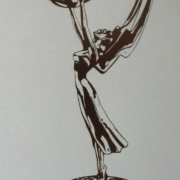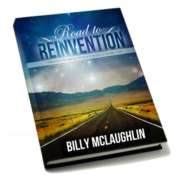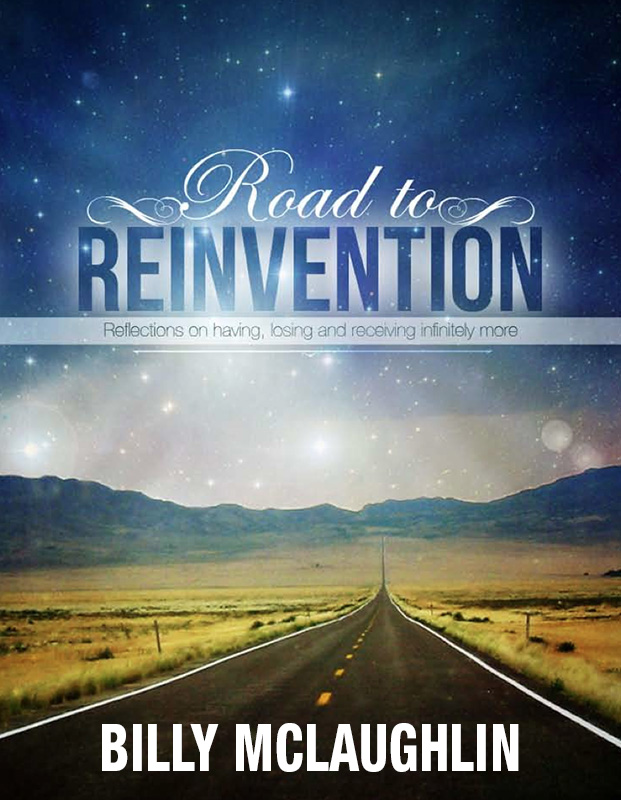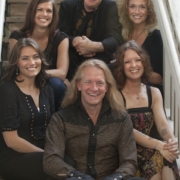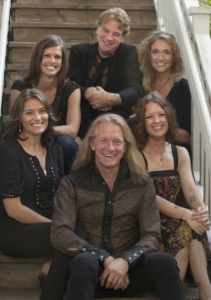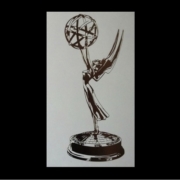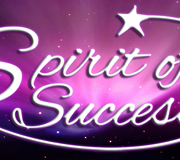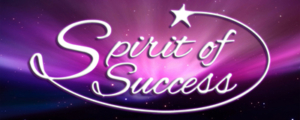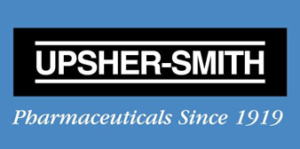
Upsher-Smith
Billy was asked to give a presentation to the Upsher-Smith Community, an assembly of employees and invited guests, with the intent of raising their awareness and understanding of the types of challenges Billy encounters with dystonia as well as the challenges he faces with his son’s epilepsy. “Originally, I had wanted to ask Billy to do a more intimate version of his music and leadership story that he presented during the gala for the Epilepsy Foundation. When Mark heard of the plan, he decided to invite the entire company together on the lawn outside our building,” said Dave.
“People at Upsher-Smith are kind, caring and open-minded. When they observe and hear someone like Billy, they work harder, better and faster to develop solutions that people need to live healthier lives,” said Mark. “That’s why I hold these events. They give us a picture of who we are working for while attaching a face and a story to our efforts. As far as I’m concerned, the faster we can solve problems involving the central nervous system, the better it will be for all,” he explained.
The company has hosted similar outdoor events to employee groups, including a panel of parents whose children have epilepsy and an adult woman with epilepsy who shared her life experiences. One of the reasons for this exploration is that Upsher-Smith is developing drugs that treat seizure disorders. They are currently working on three products that include standard therapy, rescue therapy and treatment for refractory symptoms.
Billy’s presentation was scheduled so that it bridged normal and after-work hours. It took place on the lawn outside the building. Mark noted, “When I sent a company-wide email announcing Billy’s presentation, the excitement was high, but expectations were unknown. People did not expect to be as captivated as they were by Billy. I looked around the audience and all eyes were fixed on him as he told his story. This is unusual during an after-hours event where people like to visit and chat. Whatever expectations they may have had were blown away, mine included.”
Among the takeaways for Mark was the fact that after Billy resolved to learn his music left handed (having lost the use of his right hand to dystonia), he would not settle for anything short of playing his hardest song before returning to stage publicly. Also, the inspiration he shared from having been at the top of his craft before crashing and burning and then pulling himself up again while helping his son as best as he could modeled behaviors that, according to Mark, “any of us would be excited to witness.”
Billy’s presentation also served people at Upsher Smith beyond those who were working on the drugs specific to epilepsy. Dave had wanted to acquaint other groups with people afflicted by epilepsy as well as their caregivers so that they might feel less removed from all that had been going on with the new products and advocacy program.
“Billy has a unique ability to weave levity and music into the serious subject of epilepsy. He created the perfect platform to make an impact. Billy helped to rally our people behind our goal; he let them know that everything they do helps to fuel our success. The results were better than I had anticipated. Billy aligned our organization. The feedback we received was exceptional. Mark mentioned to me that it was one of the best events we had ever put together. I don’t tend to wear my heart on my sleeve, but the thing that touched me about Billy is what he’s been through. Through it all he remains positive, upbeat and willing to give of himself and his talent. I also happen to love his music. Billy provides the unique experience of a concert motivated by a story – there’s not too much of one or the other,” said Dave.
According to Dave, “I would absolutely ask Billy back to do another performance. However, I’d like to do it somewhat differently next time. As we continue our efforts in this area, I would love to see us become a bigger partner by helping to sponsor Billy’s tour in such a way that more people can hear his message, especially those who are directly impacted by epilepsy. As our efforts evolve, we can touch others with this message. Billy will help us increase awareness of what epilepsy is and how to handle it. Eventually we can make progress toward how epilepsy is being dealt with in the legislature, schools, jobs, transportation and housing. Creating this voice is a big part of our ultimate goal.”
*Thanks to Dave Stefanoni and TJ Jensen for capturing some great pictures from the event!
-

-
Billy at Upsher-Smith Laboratories Inc.
-

-
Stage view
-

-
Billy on Stage
-

-
Some great Upsher-Smith employees making this event a success!
-

-
More great Upsher-Smith employees
-

-
Billy and Mark Evenstad
-

-
Billy and Dave Stefanoni

